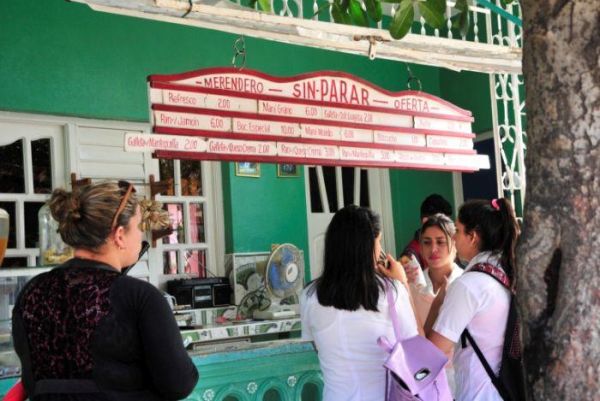
Over the last eight years, self-employment in Cuba has continued to expand, from approximately 157,000 workers in 2010 to 589,000 in 2018, currently representing 13% of the country’s workforce
Minister of Labor and Social Security Margarita González Fernández, in a statement to Granma, commented that, as projected, this modality of employment has generated jobs, expanded options for the population, and freed the state from the responsibility of managing small scale activities that do not play an essential role in the national economy.
Nonetheless, she said, violations of the law have emerged, including, for example, tax evasion and purchases of supplies of illicit origin.
Thus, with the purpose of supporting the continued development of the sector in an orderly, legal manner, a policy including 20 regulations was approved and published in the Official Gazette last July 10, stipulating December 7 as the date they would enter into effect, and mandating a broad training program for workers and authorities to ensure understanding of the changes.
During this period, based on an analysis conducted —and the opinions of self-employed workers and the population, gathered in a broad process of discussion— the Council of Ministers decided to make some modifications, including elimination of the limit to a single self-employment license per person.
Likewise, beginning tomorrow, licenses will again be authorized for 26 of the 27 activities which had been suspended. Licenses for self-employed computer programmers will remain suspended until specific norms for this area are developed.
Additionally, the maximum capacity of 50 for food service establishments was eliminated, with capacity to be determined by the size of the site to be utilized.
Regarding the requirement of a commercial bank account: the minimum balance will be reduced from three monthly tax quotas to two, for operations in six categories (food services, restaurants and cafeterias; bar and recreational services; rental of rooms and spaces; construction, repair and maintenance services; and transportation of passengers in the capital), and up to 35% of income need not be deposited in the account, to provide greater flexibility.
González Fernández emphasized that these adjustments reflect the government’s intention to recognize the positive role played by self-employment workers in the updating of our economic model, and to take into consideration the opinion and experiences of those directly involved, with the goal of establishing a climate of order and discipline in the sector.
The media will provide information on the adjustments and clarify any questions, she said.
 Escambray ENGLISH EDITION
Escambray ENGLISH EDITION





Escambray reserves the right to publish comments.